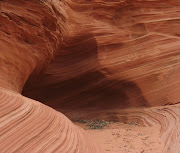 Scientists (and Nobel Laureate Al Gore) rang the five-alarm fire bell on global warming with scorched earth warnings of devastating drought, fierce floods and fallow farms. New research is seeking where and what disasters are predictable on a regional basis or have interventions that may mitigate some of the looming disasters. Luck favoring the prepared mind and all. The other Nobel Peace Prize winners, the thousands of sientists from IPCC, have worked on climate change and global warming since 1988. (River Po)
Scientists (and Nobel Laureate Al Gore) rang the five-alarm fire bell on global warming with scorched earth warnings of devastating drought, fierce floods and fallow farms. New research is seeking where and what disasters are predictable on a regional basis or have interventions that may mitigate some of the looming disasters. Luck favoring the prepared mind and all. The other Nobel Peace Prize winners, the thousands of sientists from IPCC, have worked on climate change and global warming since 1988. (River Po) But it takes some acclimating to absorb how many seriously bad things are happening to the planet as Earth evolves to accommodate the changes, population growth, diminishing amounts of resources and soil erosion. Natural disasters, a direct result of humankind's negligent planet care-taking, are a climate change phenomenon requiring risk evaluations based on hard science. Scientists from over a 140 nations are debating risk factors and the effects of continuing to rise on Earth. From 12 November to 17 November, the United Nation's IPCC scientists are in scenic Valencia, Spain finalizing a summation on next steps and the variables involved with predicting the unpredictable. (AFP photos)
But it takes some acclimating to absorb how many seriously bad things are happening to the planet as Earth evolves to accommodate the changes, population growth, diminishing amounts of resources and soil erosion. Natural disasters, a direct result of humankind's negligent planet care-taking, are a climate change phenomenon requiring risk evaluations based on hard science. Scientists from over a 140 nations are debating risk factors and the effects of continuing to rise on Earth. From 12 November to 17 November, the United Nation's IPCC scientists are in scenic Valencia, Spain finalizing a summation on next steps and the variables involved with predicting the unpredictable. (AFP photos)An IPCC report in April gave regional projections for a warmer climate such as a melting of the Himalayan glaciers or better growing conditions for Nordic forests, but the scale is often too vague to be of great use.Farmers from Africa to Australia would like to know which areas are threatened by desertification. Ski operators from the Alps to the Rocky Mountains wonder how high the snow line will be before investing in new hotels or ski lifts.
"To get down to the site-level would be a huge step," said Martin Parry, a British scientist who co-chairs the IPCC section devoted to regional impacts of climate change.
The impact of global warming depends largely on how many people keep burning fossil fuels, a main source of greenhouse gases, or develop cleaner energies such as wind or solar power.
 Where is it all falling apart - pick. The IPCC cataloged damage with its initial report in April 2007. Approximately one third of the world's wildlife will/may suffer extinction due to the loss of natural habitats and overdevelopment. In Argentina, the Perito Moreno Glacier is shedding chunks of melting ice raising water levels a little at a time. The Canary Islands faces desertification in 57% of its territory. Other areas in Spain face extreme climate changes due to development and altered rainfall quantities. Water usage for an inordinate amount of golf courses and tourists is burdening municipalities the world over. Atlanta is an American prime example of an emergency after a lengthy drought has dried the prime water source for multiple states to have heated legal debates about the rightful owner of the remainder of the muddy waters.
Where is it all falling apart - pick. The IPCC cataloged damage with its initial report in April 2007. Approximately one third of the world's wildlife will/may suffer extinction due to the loss of natural habitats and overdevelopment. In Argentina, the Perito Moreno Glacier is shedding chunks of melting ice raising water levels a little at a time. The Canary Islands faces desertification in 57% of its territory. Other areas in Spain face extreme climate changes due to development and altered rainfall quantities. Water usage for an inordinate amount of golf courses and tourists is burdening municipalities the world over. Atlanta is an American prime example of an emergency after a lengthy drought has dried the prime water source for multiple states to have heated legal debates about the rightful owner of the remainder of the muddy waters.Complex issues of micro-targeting regions and resource management are topics for the the scientists' future meetings in 2013. The long term prognostication is bleak with rising temperatures, desertification and areas that receive an overwhelming amount of rainfall if changes are not instituted immediately. People living on the coast face twin disasters of erosion and climbing seas."The Mediterranean is especially vulnerable and faces the threat of large-scale migration and the disruption of local economies," Italian expert Antonio Navarra of Italy's National Institute of Geophysics and Vulcanology, told AFP in a recent interview.
"We are looking at major impacts that could be put tremendous stress on agriculture, water management, energy production and tourism."
In April, the IPCC warned that availability of fresh water in badly-hit Mediterranean countries could fall by as much as a third by 2100.
 The Worst Hard Time: The Untold Story of Those Who Survived the Great American Dustbowl is a nonfiction history tale of the state of Oklahoma. National Book prize winner Timothy Egan is the author recapping a state of drought that brought farmers and rural communities to disaster.
The Worst Hard Time: The Untold Story of Those Who Survived the Great American Dustbowl is a nonfiction history tale of the state of Oklahoma. National Book prize winner Timothy Egan is the author recapping a state of drought that brought farmers and rural communities to disaster.










No comments:
Post a Comment